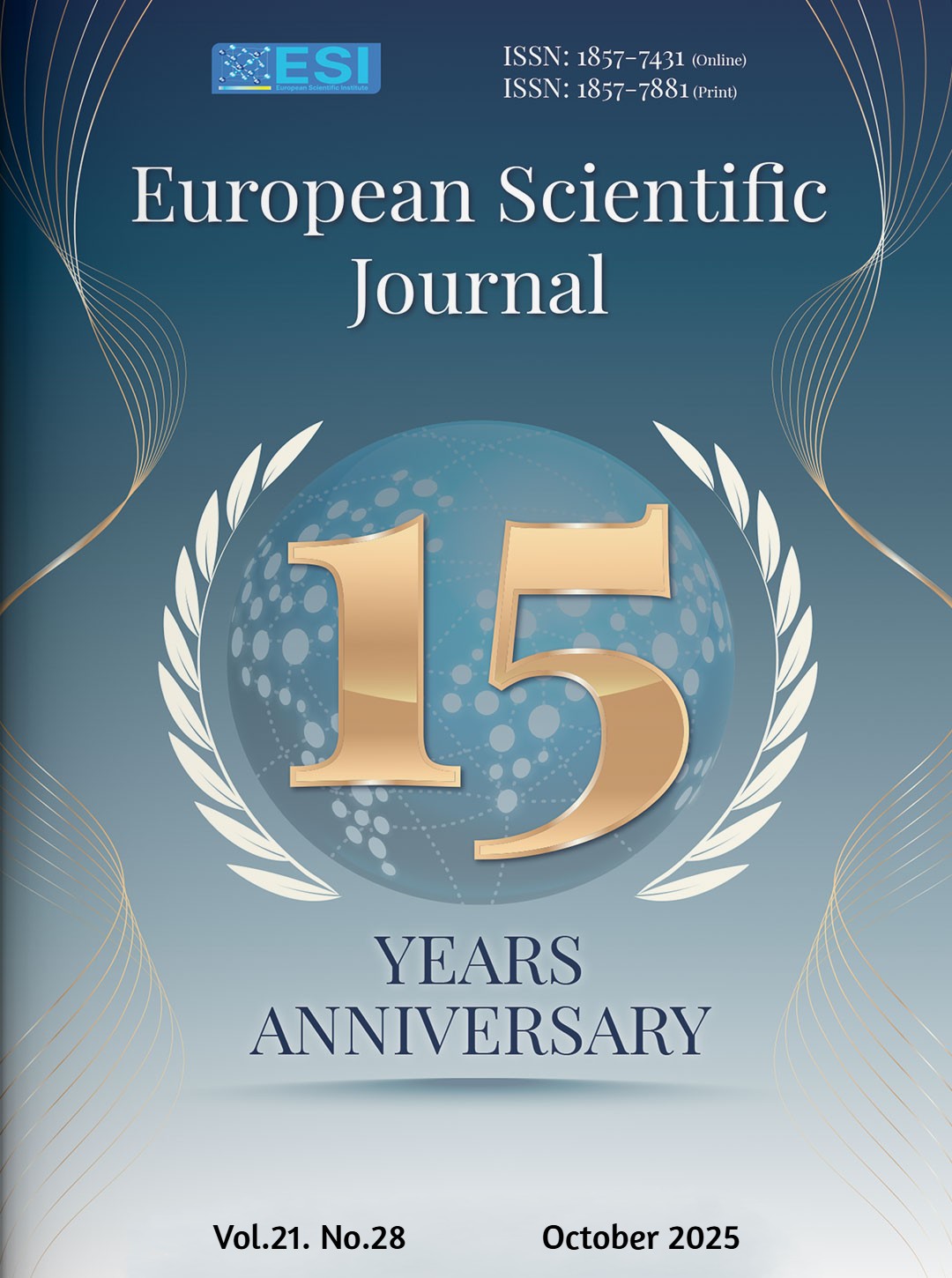Employing IT Service Management to Accelerate Digital Government Transformation in Saudi Arabia: A Vision 2030 Perspective
Abstract
Saudi Arabia’s Vision 2030 prioritizes digital transformation as a driver of efficient, citizen-centered governance, with Information Technology Service Management (ITSM) positioned as a critical enabler. This study assessed how ITSM maturity influences digital service performance and contributes to national transformation goals. A sequential explanatory mixed-methods design was applied, including an online survey of 80 IT managers from ministries, municipalities, and utilities, 15 semi-structured interviews with senior IT leaders, and a case study of the Ministry of Interior’s Absher platform. Survey data were analyzed using descriptive statistics, Pearson correlations, and linear regression; qualitative data were coded thematically. Results showed that agencies with higher ITSM maturity achieved significantly greater system uptime (r = 0.53, p < .01) and citizen satisfaction (r = 0.70, p < .01). Regression analysis confirmed that each one-point increase in maturity predicted approximately a 3.3% increase in service uptime and a 0.5-point gain in satisfaction on a five-point scale. Interviews and the Absher case highlighted leadership commitment, structured workforce training, and Vision 2030 alignment as key enablers, while skills shortages, legacy infrastructure, and cultural resistance were persistent barriers. The findings demonstrate that ITSM maturity directly supports the Kingdom’s strategic targets for reliability and user satisfaction. Policymakers and public-sector leaders are encouraged to strengthen governance, invest in skills pipelines, and modernize legacy systems to scale ITSM benefits across agencies and sustain Saudi Arabia’s regional leadership in digital government.
Downloads
PlumX Statistics
References
2. Alqahtani, A. S. (2017). Critical success factors in implementing ITIL in the Ministry of Education in Saudi Arabia: An exploratory study. International Journal of Advanced Computer Science and Applications, 8(4). https://doi.org/10.14569/ijacsa.2017.080432
3. Alrabghi, R. (2022). Digital government in light of digital transformation programs and achieving the goals of the Kingdom of Saudi Arabia’s 2030 vision: The Digital Government Authority as a model. Arab International Journal for Information Technology & Data, 2(2), 1–20. https://doi.org/10.21608/aijtid.2022.117695.1005
4. Amin, S. F., Saad, A. B., & Lajis, A. (2022). Technology acceptance factors for implementing the e-government systems in Saudi Arabia. Advances in Internet of Things, 12(4), 125–141. https://doi.org/10.4236/ait.2022.124008
5. Digital Government Authority. (2025). The Digital Experience Maturity Index for 2025 rises to 86.71%. Saudi Arabia: Digital Government Authority. Retrieved August 20, 2025, from https://www.dga.gov.sa
6. Iden, J., & Eikebrokk, T. R. (2013). Implementing IT service management: A systematic literature review. International Journal of Information Management, 33(3), 512–523. https://doi.org/10.1016/j.ijinfomgt.2013.01.004
7. Jyoti, S. N. (2025). ITSM-based change management automation in cloud environments: A cross-sector empirical study. Review of Applied Science and Technology, 4(2), 440–472. https://doi.org/10.63125/xvjst226
8. Latupeirissa, J. J. P., Dewi, N. L. Y., Prayana, I. K. R., Srikandi, M. B., Ramadiansyah, S. A., & Pramana, I. B. G. A. Y. (2024). Transforming public service delivery: A comprehensive review of digitization initiatives. Sustainability, 16(7), 2818. https://doi.org/10.3390/su16072818
9. Marrone, M., & Kolbe, L. M. (2011). Impact of IT service management frameworks on the IT organization. Business & Information Systems Engineering, 3(1), 5–18. https://doi.org/10.1007/s12599-010-0141-5
10. Marrone, M., Gacenga, F., Cater-Steel, A., & Kolbe, L. (2014). IT service management: A cross-national study of ITIL adoption. Communications of the Association for Information Systems, 34(1), 865–892. https://doi.org/10.17705/1CAIS.03449
11. Nadrah, R., Gambour, Y., Kurdi, R., & Almansouri, R. (2020). E-government service in Saudi Arabia. PalArch’s Journal of Archaeology of Egypt/Egyptology, 18(16), 21–29. https://archives.palarch.nl/index.php/jae/article/view/8156
12. Sarwar, M. I., Abbas, N., Alyas, A. I., & Alzahrani, A. I. (2023). Digital transformation of public sector governance with IT service management: A pilot study. IEEE Access, 11, 6489–6500. https://doi.org/10.1109/ACCESS.2023.3237550
13. Saudi Gazette. (2025, February). Absher platform completes more than 24 million electronic transactions. Saudi Gazette. Retrieved August 20, 2025, from https://www.saudigazette.com.sa
14. Saudi Vision 2030. (2024). Saudi Vision 2030. Government of Saudi Arabia. Retrieved August 20, 2025, from https://www.vision2030.gov.sa/en
15. Serrano, J., Faustino, J., Adriano, D., Pereira, R., & da Silva, M. M. (2021). An IT service management literature review: Challenges, benefits, opportunities, and implementation practices. Information, 12(3), 111. https://doi.org/10.3390/info12030111
16. Tan, C.-W., & Pan, S.-L. (2003). Managing e-transformation in the public sector: An e-government study of the Inland Revenue Authority of Singapore (IRAS). European Journal of Information Systems, 12(4), 269–281. https://doi.org/10.1057/palgrave.ejis.3000462
Copyright (c) 2025 Fatma Abudaqqa

This work is licensed under a Creative Commons Attribution 4.0 International License.








